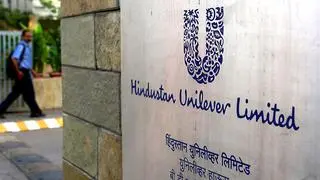There are as many as 1 lakh diagnostic labs in the country but the industry is totally unregulated, says Ameera Shah, Promoter and Managing Director of listed company Metropolis Healthcare . In an interview to BusinessLine, Shah stressed on the need for regulation, and highlights the headwinds the diagnostics industry is facing due to the economic slowdown. Excerpts:
How does lack of regulation in the laboratory and diagnostics industry affect patients?
The diagnostics industry is dominated by about 1,00,000 mom and pop labs which account for 85 per cent of the market in the country. There are only four national labs — Metropolis, Lal’s Path Labs, SRL Diagnostics, which is a Fortis company, and Thyrocare. National chains command only 15 per cent of the market. There are 10 regional chains in States. The industry is hundred per cent non-regulated. It affects the patient drastically. The way you collect samples affect the quality of the results. Some labs are run by pathologists and some run by non-medicos who are unqualified. The latter will not have proper machines, they will do things manually, make chemicals in their own lab while we bring them from US-FDA approved suppliers. We see hundreds of patients, who had earlier gone to a smaller labs and later come to us because the doctors don’t accept their results. It costs patients double the money. There is no regulatory body, and we will be very happy if the government puts in some regulation. It is scary situation for patients and it is an unfair business environment.
What are the best practices followed internationally for regulating the industry?
India has a problem of oversupply of labs that do not follow standards. But China, which has a population of 1.6 billion (higher than India), has 5,000 labs and they are 100 per cent regulated. We keep lobbying with the government for a policy and ask the Health Ministry to let us be regulated. Right now we are free for all. In the US, there is a separate division under the Health Ministry which sets minimum standards for labs. One has to write to the Ministry to start a lab, comply with minimum standards and get mandatory accreditation.
But at times there is lack of parityin test results even between twonational labs?
The results depend on the machine you are using. For example, lab A may have a cholestrol reference rate of 220, while our reference range will be more sensitive at 200. Lets say you get 210, Lab A will say you are normal, but Metropolis would say you are out of range.
While haemoglobin levels for Indian women at 11 to 12 are normal, American standards are 13 to 14. Equipment companies will give reference range based on the global population. We have poured over data of 35 years and created our own reference range.
How is the competition in the industry ?
All national players have different markets and varying models. Metropolis and Lal’s do not compete at all in business to consumer (B2C) segment. Lal is very strong in B2C in Delhi NCR and a bit in Kolkata whereas Metropolis is strong on B2C in Mumbai, Surat, Pune, Bengaluru, Chennai, Rajkot and Nasik. Thyrocare, on the other hand does not compete with any major players. While SRL, Metropolis and Lal do between 3,000-4,000 varieties of tests, Thyrocare does only 200.
They have set up franchisees, they go to local labs and say do not do the tests that we do. Just pick them up and send them to us in Navi Mumbai and we will do it for you at cheaper prices. They have built their business on price competitiveness, by making it inexpensive. In the business-to-business segment, they deal with smaller labs not run by pathologists.
How is Metropolis’ business doing?
We opened with an issue price of ₹880 apiece and the current average is up by 45 per cent at ₹1,250.
On the business side, growth has been over 18 per cent and we are the fastest growing among all the listed and unlisted players.
Our profit margins are between 27 and 28 per cent and average revenue per sample per test is increasing. We have achieved up to 25 acquisitions in the last 15 years.
But do you see the headwinds due to an uncertain economic environment affecting the diagnostics industry?
There is generally a negative perception in India for all businesses right now. Money is being pulled out by foreign institutional investors and people do not want to invest because they feel there are a lot of changes in the policy. They see growth is falling. Healthcare does not get as badly affected as other consumer markets do, but there is some effect, which happens due to a poor non-growing economy.
Today, a consumer who is thinking of getting his/her preventive check-up done will not go ahead if s/he has no job security.
People also defer their illness checks. During demonetisation, there were people who had to get their knee surgeries, but cash was stuck in the system so they deferred it by four months.
You cannot defer a heart surgery but you can live with the pain of a deferred knee surgery.








Comments
Comments have to be in English, and in full sentences. They cannot be abusive or personal. Please abide by our community guidelines for posting your comments.
We have migrated to a new commenting platform. If you are already a registered user of TheHindu Businessline and logged in, you may continue to engage with our articles. If you do not have an account please register and login to post comments. Users can access their older comments by logging into their accounts on Vuukle.